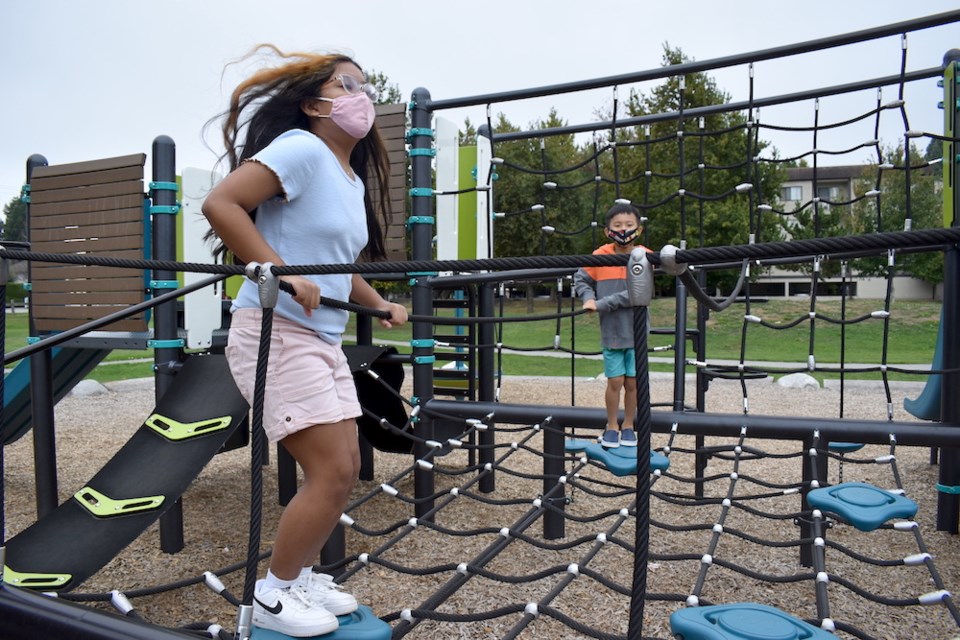I just finished reading The Anxious Generation by social psychologist Jonathan Haidt, whose basic message is that smart phones have created a generation of young people plagued with anxiety, depression, tendencies to self-harm and an increase in suicides. It’s a depressing read, but he has four key suggestions for healthier childhoods, including:
- No smartphones before high school
- No phones in schools, even at recess or lunch
- No social media before age 16
- More independence and free play
Australia recently introduced a law banning kids under 16 from social media and putting the onus on tech companies to enforce the law or face massive fines. It will be interesting to watch that play out as an example.
B.C. recently banned phones in schools, at least during class, a rule I thought would be very difficult to uphold, but which seems to be working. I don’t think it covers recess and lunch, and the reason Haidt says those times should be included is so that kids make real life, in-person connections. He’s certainly right about that, considering that one in four young people in B.C. say they are lonely.
Anxiety is fear of the future, so slightly different from fear in the immediate moment, and it is rampant. Haidt writes that more than one-third of American college students say they feel anxious always or most of the time and another one-third feel anxious about half the time. That’s a lot of anxiety!
While I agree that constant distraction and a lack of human interaction contributes to overall anxiety, I also think fear of the future might be a rational reaction to being alive in 2025. Consider politics or climate change for five minutes and you will see what I mean.
One of my favourite things to do when I’m feeling anxious is go for a walk in nature or with a friend – even better, in nature and with a friend. Conversation is always calming, and the beauty of nature helps me remember that the world is more than just my life and even more than just the human world.
Haidt agrees and encourages parents to start letting kids play outside without supervision more often. While that might sound like heresy to parents worried about sexual predators, the truth is that most sexual predators have moved online to where there is omnipresent, free, anonymous pornography. Not to say you shouldn’t check on your kids outside, you should. I’m just putting the fears into perspective.
For Haidt, the riskier the play, the better. He says kids are like immune systems – they need to be subjected to risks to be stronger. His word for it is “anti-fragile,” which means kids need to fall or fail so that they learn to get back up or start over. If they’re doing it with other kids, so much the better because they will learn interpersonal skills like conflict resolution and decision making.
The human brain takes 25 or 26 years to fully mature. A key time for social development is the years between nine and 15, when what is learned socially tends to stick for a lifetime. If that’s all virtual or online, it will be an isolating life, indeed.
I remember learning about how the attraction between men and women involves many hidden factors that human beings are not aware of — things controlled by hormones, like scents or pheromones.
I’m sure there are similar things, like body language or other unconscious signals, working mysteriously in the background whenever humans congregate. But if we never gather and only interact virtually, those signals will be lost. And in the meantime, even without realizing it, we are living a much blander existence.
Not only that, but smartphones contribute to sleep deprivation, attention fragmentation and addiction. I still believe schools should be teaching kids how to use smartphones appropriately and effectively, but I’ve come around to the idea that schools should be phone-free, that kids shouldn’t be on smartphones until high school or social media until they’re 16. I’ve always been a believer in playing outdoors.
Haidt’s book makes interesting reading and is food for thought. Before long, we might see warning stickers, like on cigarette packages, whenever social media sites open on our phones. In the meantime, I’m going to try to limit my use and spend more time playing in nature.
Tracy Sherlock is a freelance journalist who writes about education and social issues. Read her blog or email her [email protected].
📣 Got an opinion on this story or any others in Richmond? Send us a letter or email your thoughts or story tips to [email protected].
📲 To stay updated on Richmond news, sign up for our daily headline newsletter.
💬 Words missing in article? Your adblocker might be preventing hyperlinked text from appearing.



